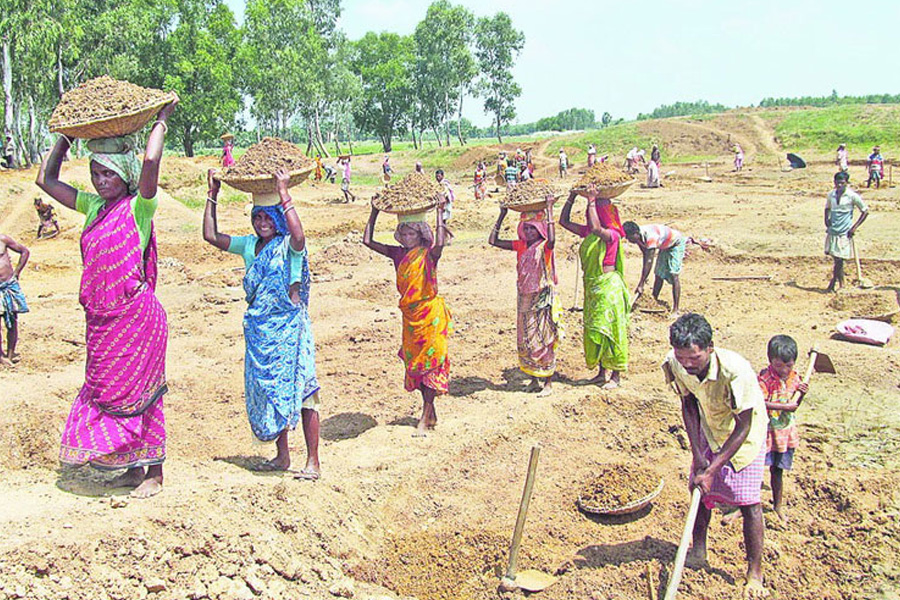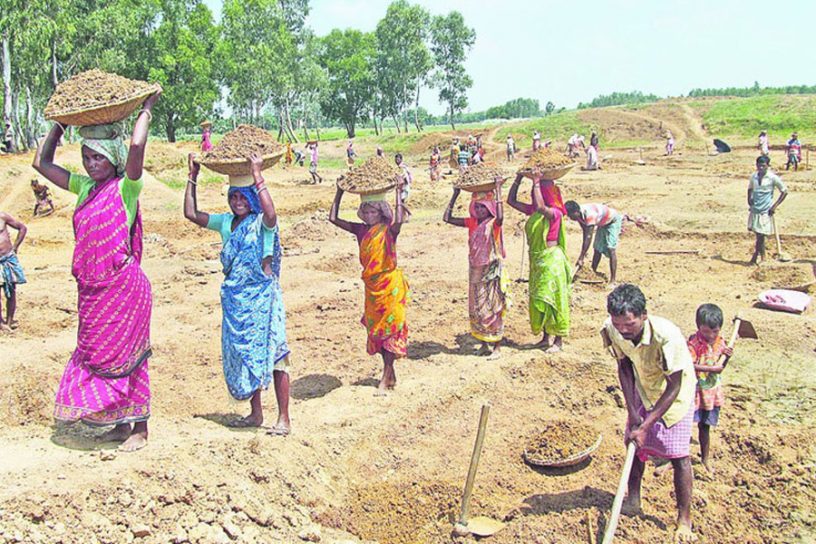
In light of the pandemic and based on international experiences in public work programmes, there is an urgent need for the expansion of the employment guarantee.
Author
Swati Narayan, Assistant Professor, Jindal School of Public Health and Human Development, O.P. Jindal Global University, Sonipat, Haryana, India.
Summary
For the last decade, India’s National Rural Employment Guarantee Act (NREGA, 2005) has been the world’s largest public works programme. This legal entitlement provided employment to 28 per cent of rural Indian households in 2019–2020. After the COVID-19 pandemic, NREGA is increasingly emerging as an invaluable employer of the last resort.
However, longitudinal data of implementation in its first fifteen years reveal distinctive trends. On the one hand, since inception, NREGA has rendered greater benefits to women and marginalised communities.
But on the other, since 2014 till before the pandemic, the present National Democratic Alliance (NDA) regime has reduced NREGA coverage compared to its implementation during the previous United Progressive Alliance (UPA) coalition government which had enacted the legislation.
Nevertheless, in light of the pandemic and based on international experiences in public work programmes, there is an urgent need for the expansion of the employment guarantee.
Published in: The Indian Journal of Labour Economics
To read the full article, please click here.


